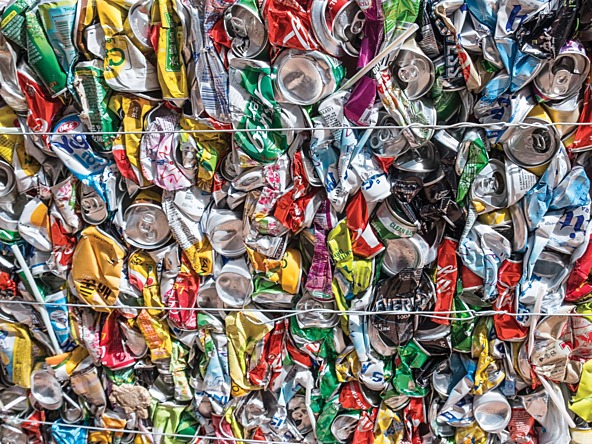New hope: Sustainabilty and consumers

At the end of the promenade in Penzance in Cornwall, site of this year’s G7 summit, sits the UK’s first outdoor geothermal pool. The Jubilee Pool, an art deco lido built in the 1930s, reopened in 2018 fuelled entirely by renewable energy.
Across the world, leaders are grappling with climate change. For example, Xi Jinping last year re-emphasised China’s commitment to capping and reducing carbon emissions. The question is: what do consumers think about sustainability? This was the question Bamm wanted to answer with our sustainability project, which used a combination of 15 online ethnographies and a ‘500 person per country’ survey across the US, UK and China, in addition to both social and content listening (analysing the content of brand advertising).
Most people ( 79%) across those markets feel sustainability is important. Most people ( 60%) also feel that sustainability has become even more important over the past year. Perhaps the pandemic created a sense of fragility about the world, which has haloed over to the planet. Or perhaps people found purpose in sustainable behaviours at a time where everything else felt a little lost. Whatever the reason, the message is clear: now is the time to be engaging people around sustainability.
However, ‘sustainability’ is an amorphous term and means lots of things to different people. The United Nations, for example, has a breadth of activities within its 17 ‘sustainable development goals’ including areas such as increasing gender equality, reducing poverty, and global peace. What’s clear from our study is that consumers have a different, tighter perspective that is much more orientated around waste and nature. The top things sustainability means to consumers is “reducing wastefulness” ( 40%), “keeping natural systems in balance” ( 38%), and “looking after the world” ( 36%). Only very few associate the space with the UN goals – for example, “reducing poverty” ( 11%), “global peace” ( 11%), or “equality for everyone” ( 14%).
We ran text analysis of 32 sustainability video ads from big brands over the past year. For brands, sustainability messaging tends to be around the climate and energy. The top five nouns used across those adverts were “people”, “energy”, “world”, “carbon”, “electricity”. For consumers, sustainability is squarely about wastefulness and recycling, and the top five nouns were: “environment”, “resources”, “recycle”, “waste”, “planet” according to open-ended survey responses. The question for brands is should they tack to how consumers currently think about sustainability, or should they look to influence their opinion?
The research also found that for Chinese people, sustainability is more directly linked to pollution and looking after their country, driven in part by air and water quality issues in the recent past. For our question “What does sustainability mean to you?”, 46% of Chinese respondents said “less pollution” versus 35% in the UK and 27% of Americans. The research also found 40% of Chinese respondents said “looking after your country” versus 23% in the UK and 22% in the US.
In China, technology is a marker of how sustainable a company is, more so than in other countries (here the Chinese consumer may be ahead of the other markets). For the question “What’s most important to you when considering whether a company is sustainable?”, 32% in China say “that the company provides or uses technology that helps sustainability” versus 13% in the UK and 16% in the US.
This shift in emotions around sustainability seems to be coming from several places. First, there’s a sense that if we can get through Covid-19 we can get through anything. Second, there’s a sense of belonging that seems to have given people a feeling of purpose and pride. And third, there are more hopeful messages and influencers out there around sustainability who are showing that things can change.
The message overall is clear for brands: take sustainability seriously. Meet consumers’ growing focus on the space. Decide whether to lead and influence with messaging around energy and climate, or incorporate more of a ‘waste reduction’ approach. And, whatever you do, go forward with hope and determination.
- 79% of consumers say sustainability is important to them
- 60% agree that sustainability has increased in importance to them this year
- 58% say they’ve reduced household waste over the past three years.
Source: Bamm research in the UK, US and China
Mark Potts is chief strategic officer at Bamm.
THIS ARTICLE WAS FIRST PUBLISHED IN THE OCTOBER 2021 ISSUE OF IMPACT.

We hope you enjoyed this article.
Research Live is published by MRS.
The Market Research Society (MRS) exists to promote and protect the research sector, showcasing how research delivers impact for businesses and government.
Members of MRS enjoy many benefits including tailoured policy guidance, discounts on training and conferences, and access to member-only content.
For example, there's an archive of winning case studies from over a decade of MRS Awards.
Find out more about the benefits of joining MRS here.













0 Comments